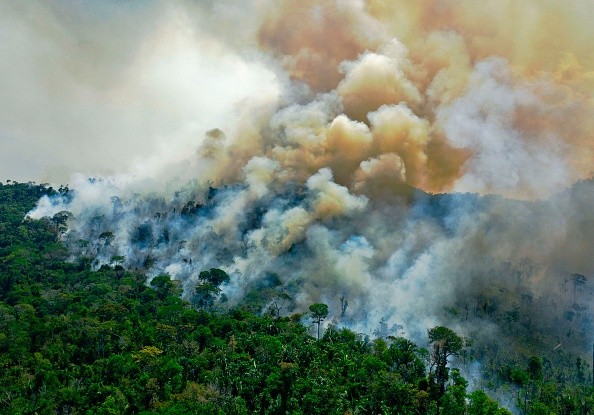According to a Thursday report, Brazil's greenhouse gas emissions increased by 9.5 percent last year, mostly due to deforestation, making it one of the only large economies that did not reduce pollution as the pandemic began.

Greenhouse Gas Emissions
Despite the fact that global emissions declined seven percent in 2020 as a result of Covid-19 stay-at-home policies that crippled the global economy, Brazil emitted 2.16 billion tonnes of carbon dioxide. According to a Climate Observatory report, a partnership of environmental groups, this is the highest level since 2006.
It said: "The increase in deforestation in Brazil, particularly in the Amazon rainforest, puts the country at odds with the trend seen in the rest of the planet."
Since far-right President Jair Bolsonaro assumed office in 2019, deforestation has increased in Brazil, with a push to open protected lands to agribusiness and mining.
Last year, when the pandemic brought industry and aviation to a halt, Brazil, Latin America's largest economy, decreased emissions from the energy sector, the same as most other countries. Emissions decreased by 4.6%, reaching levels tha hasn't been seen since 2011.
However, rises of 2.5℅ in the agricultural sector and 23.7℅ in "land use modifications," which includes tree cutting and burning, more than reduced this gain.
Land clearance, which is mostly driven by farming and cattle ranching, releases carbon into the atmosphere, which is a huge concern for the world's largest producer and exporter of grain and beef.
COP26
The Brazilian Amazon has lost almost 10,000 square kilometers (3,860 square miles) of forest cover every year under Bolsonaro, an area the size of Lebanon, up from 6,500 square kilometers per year during the previous decade.
Bolsonaro's "anti-policies" on the environment, according to Climate Observatory executive secretary Marcio Astrini, are to blame for the rise in emissions.
"Brazil managed the feat of being perhaps the only major carbon emitter to pollute more in the first year of the pandemic," he said in a statement.
"This is one more blow to the international image of the country, which arrives completely discredited to the COP26" - the approaching UN climate summit.
It is the largest climate conference since the 2015 Paris meetings created a historic agreement on reducing global warming, and it begins on Sunday in Glasgow. It is viewed as critical for establishing global emissions-cutting objectives.
Brazil's Greatest Emission Source
Deforestation in Brazil's Amazon area surged by 55 percent in the first four months of this year compared to the same period last year, according to preliminary government figures.
The Amazon, which is 60 percent in Brazil, is the world's biggest rainforest and absorbs massive amounts of carbon dioxide.
In agriculture, the study found that, as a result of the crisis, cattle slaughter has decresed in Brazil, leaving more cows in the field, where they continue to produce methane, a strong greenhouse gas.
When the land sector is removed, Brazil's policies and actions are predicted to result in fewer emissions by 2030 than the country's objectives. However, there are large gaps in Brazilian strategy for decreasing emissions production, and deforestation in Brazil continues to be a major source of worry.
Deforestation rates are increasing as a result of the continuous rollback of forest preservation regulations, driving emissions from Brazil's greatest source - deforestation - upwards after more than a decade of reduction.
Agriculture, which is a significant cause of deforestation, is the second greatest contributor to Brazil's GHG emissions after deforestation.
Related Article : Hunting Down CFCs: The World's Most Potent Greenhouse Gas
For more news, updates about greenhouse gas emissions and similar topics don't forget to follow Nature World News!
© 2025 NatureWorldNews.com All rights reserved. Do not reproduce without permission.





